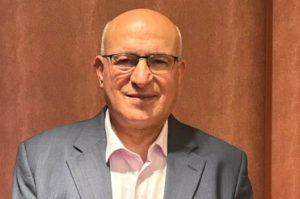America Needs Health Care, Not Sick Care
Year after year, the healthcare debate centers on universal coverage.
It's a laudable goal. But all too often, the single-minded focus on this objective is a distraction from achieving what most Americans really want - inexpensive, easy-to-use health insurance. As currently structured, the American system is ill-equipped to provide this.
The solution to this problem is not a government-run healthcare bureaucracy. Rather, it's a private insurance system dedicated to more than just treating the sickest among us. Right now, we have a sick care system. What we need is a health care system.
To understand what this means, look at one of the major causes of the soaring cost of medical care: preventable chronic diseases. Obesity is one such chronic condition. In the last quarter-century, the number of obese Americans has roughly doubled. On top of that, the incidence of related conditions like diabetes is rising.
Chronic illnesses like these, which require constant care over a lengthy timeframe, were responsible for 75 percent of American healthcare spending in 2006. If we are serious about expanding health coverage, we must work to prevent chronic diseases before they emerge.
What can we do to better fight chronic conditions?
For starters, health insurance plans must be simplified so that patients know what they're paying for. With most kinds of insurance, like automobile insurance, consumers understand the financial consequences of potentially destructive behavior like reckless driving.
With health insurance, on the other hand, consumers are less aware of the costs of their behavior. By typically relying on their insurance companies to resolve the details of their medical bills, patients have little insight into the payment process and thus have little incentive to avoid costly hospital visits.
If patients knew how much their unhealthy decisions were costing them, they'd be a lot more vigilant in safeguarding their health.
We could also benefit from a revolution in the way that medical information is stored and accessed by healthcare professionals. In most doctors' offices, medical records are still kept in file-rooms filled with stacks of tattered folders containing hand-written forms.
Thanks to this antiquated method of medical record-keeping, information is often lost, unnecessary medical tests are ordered, and patients can be misdiagnosed. Aside from driving up healthcare spending, errors like these make it difficult for patients to get the care they need when they need it.
Mistakes and wasteful spending can be avoided by digitizing health records in a national computer database. Such a database would allow doctors to access reliable medical information quickly, even for new patients, and facilitate accurate diagnoses.
According to a recent study published in the medical journal Health Affairs, such a database could save the U.S. health sector $80 billion a year. The relevant technology has existed for years. All that's needed to implement it is the political will.
Finally, we should work to make sure that health insurance is within the reach of all Americans. Expanding coverage doesn't require a government takeover of the health sector. Instead, we can do so through tax credits, vouchers, and subsidies.
Small businesses who can't afford to cover their employees should receive tax credits to make it easier for them to do so. Similarly, families who can't afford coverage should be eligible for government subsidies so that they can purchase insurance policies that suit their needs. It's certainly cheaper to help people seek low-cost, preventative care than it is to treat chronic illnesses that develop down the road.
With these common-sense reforms, we can remove waste from America's healthcare sector and make it easier, less expensive, and more attractive for individuals to live healthier lives.




























